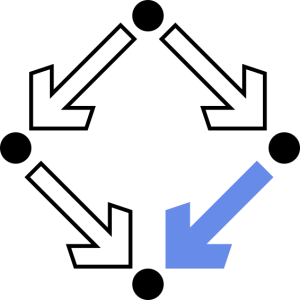Analytische Kombinatorik
Section outline
-
Di, 12:00-13:30 Uhr, T 211
The lecture will be in English. The learning goal is to develop basic skills and techniques which are relevant
to problem solving when dealing with formulas related to enumeration, in particular, for the analysis of algorithms.Many of the topics discussed in the lecture can be found in the book "Concrete Mathematics - A Foundation for Computer Science" by R.L.Graham, D.E.Knuth und O.Patashnik (Addison-Wesley, 1994). A citation from its preface:
"...But what exactly is Concrete Mathematics? It is a blend of CONtinuous and disCRETE mathematics. More
concretely, it is the controlled manipulation of mathematical formulae, using a collection of techniques for solving problems. Once you ... have learned the material in this book, all you will need is a cool head, a large sheet of paper, and fairly decent handwriting in order to evaluate horrendous-looking sums, to solve complex recurrence relations, and to discover subtle patterns in data. You will be so fluent in algebraic techniques that you will often find it easier to obtain exact results than to settle for approximate answers that are valid only in a limiting sense.
The major topics in this book include sums, recurrences, elementary number theory, binomial coefficients, generating functions, discrete probability, and asymptotic methods. The emphasis is on manipulative
technique rather than on existence theorems or combinatorial reasoning; the goal is for each reader to become as familiar with discrete operations (like the greatest-integer function and finite summation) as a student of calculus is familiar with continuous operations (like the absolute-value function and
infinite integration)."
A major emphasis of the lecture is on putting computer algebra into action. Recently developed algorithms will be discussed, for instance, the Steele-prized summation algorithm by Zeilberger.
Requirements: Basic knowledge from analysis and linear algebra.
Note: Within the frame of this lecture various topics for a diploma thesis are offered.
